I) Introduction
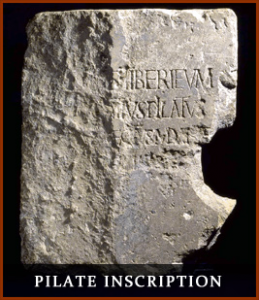
We looked at prophecies that were fulfilled to the letter, the scientifically accurate observations being made by inspired individuals that were way ahead of their time and also the way in which contemporary archaeological finds have validated the claims of Scripture.
The conclusions that can be drawn from the evidence that is readily available are as certain as they are substantive. Bottom line: The Old Testament can be embraced as, literally, the Word of God.
This week we look at the New Testament using the same approach. We’ll look at its content, we’ll consider the way it was assembled and finally, examine its consistency – the way in which the manuscripts we have available to us today match up with each other thus resulting in a text we can revere as truly Inspired.
II) The New Testament
A) Content
It’s appropriate to rehearse what it is that we’re actually trying to deduce from the evidence that is available to us, as far as, not only the accuracy of Scripture, but the reasonableness of the Bible’s claim about itself to be the Word of God:
God is not human, that he should lie, not a human being, that he should change his mind. Does he speak and then not act? Does he promise and not fulfill? (Num 23:19)
As for God, his way is perfect: The Lord’s word is flawless; he shields all who take refuge in him. (2 Sam 22:31)
The law of the Lord is perfect, refreshing the soul. The statutes of the Lord are trustworthy, making wise the simple. (Ps 19:7)
Every word of God is flawless; he is a shield to those who take refuge in him. (Prov 30:5)
16 All Scripture is God-breathed and is useful for teaching, rebuking, correcting and training in righteousness, 17 so that the servant of God[a] may be thoroughly equipped for every good work. (2 Tim 3:16-17)
20 Above all, you must understand that no prophecy of Scripture came about by the prophet’s own interpretation of things. 21 For prophecy never had its origin in the human will, but prophets, though human, spoke from God as they were carried along by the Holy Spirit. (2 Pet 1:20-21 [2 Sam 23:2] )
Given Scripture’s Divine Audacity, as far as it refusing to accept the label of “accurate,” but instead insists on it being Inerrant, let’s start with the content of the New Testament and look at it in terms of being historically accurate.
 1) Archaeology
1) Archaeology
Pontius Pilate Inscription
In 1961 the archaeological world was taken back to the first century Roman province of Judea. A group of archaeologists, led by Dr. Antonio Frova were excavating an ancient Roman theater near Caesarea Maritima. Caesarea was a leading city in the first century located on the Mediterranean Sea. A limestone block was found there with a surprising inscription. The inscription, on three lines, reads:
…]S TIBERIVM…PON]TIVS PILATVS…PRAEF]ECTVS IVDA[EA]
The inscription is believed to be part of a larger inscription dedicating a temple in Caesarea to the emperor Tiberius. The inscription clearly states, “Pontius Pilate, Prefect of Judea.”1
Heel of Yehohanan
The practice of crucifixion in antiquity was brought to life as never before when the heel bones of a young man named Yehohanan were found in a Jerusalem tomb, pierced by an iron nail. The discovery shed new light on Roman crucifixion methods and began to rewrite the history of crucifixion in antiquity.2
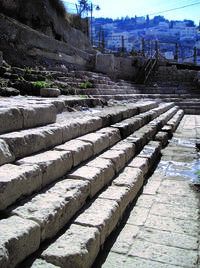 |
| “In the plaster of this pool were found coins that establish the date of the pool to the years before and after Jesus. There is little question that this is in fact the pool of Siloam, to which Jesus sent the blind man in John 9.”3 |
Pool of Siloam
In 2004, some repairs were being done on a large pipe in Jerusalem when engineers stumbled upon a series of steps that led to a first century pool. By the end of 2005, archaeologists were able to confirm that this was the Pool of Siloam referenced in John 9.
Destruction of the Temple in 70 AD
In the book of Matthew, not long before He was put to death, Jesus prophesied that the Temple would be destroyed:
Jesus left the temple and was walking away when his disciples came up to him to call his attention to its buildings. 2 “Do you see all these things?” he asked. “Truly I tell you, not one stone here will be left on another; every one will be thrown down.” (Matt 24:1-2)
Today you can look at an area in Jerusalem that was originally unearthed in the 1838. As the area was further excavated, you could see the massive stones that had at one point been part of the Temple’s structure that had been pushed over by the Romans when they destroyed in 70 AD.
To summarize, Nelson Glueck, the renowned Jewish archaeologist, wrote: “It may be stated categorically that no archaeological discovery has every controverted a biblical reference.” He continued his assertion of “the almost incredibly accurate historical memory of the Bible, and particular so when it is fortified by archaeological fact.”4
What makes the New Testament such a standout, however, is not so much the way in which it can be validated from an archaeological standpoint, as much as it’s the narrative of Christ’s death and resurrection.
2) The Resurrection
While the Resurrection can’t be proven via footage and voice recordings of eyewitnesses, the Biblical record can be substantiated by using other historically credible resources.
Josephus was a Jewish historian that lived from 37 to 100 A.D. He was employed by the Romans and he mentions this about Jesus in his “Antiquities of the Jews”:
 |
| Site of “Robinson’s Arch,” originally discovered in 1838 where you can now see the massive stones amidst the rubble left over from the Romans’ destruction of the Temple in 70 AD |
At this time there was a wise man who was called Jesus. And his conduct was good, and [he] was known to be virtuous. And many people from among the Jews and the other nations became his disciples. Pilate condemned him to be crucified and to die. And those who had become his disciples did not abandon his discipleship. They reported that he had appeared to them three days after his crucifixion and that he was alive.5
Another example that demonstrates the historical reality of Christ’s resurrection that comes from a secular source would be the account of Ignatius who lived from 50-115 A.D. He was the Bishop of Antioch, a native of Syria and a pupil of the apostle John. Enroute to a martyr’s death, he wrote his “Epistles,” and this is what he said of Christ:
He was crucified and died under Pontius Pilate. He really, and not merely in appearance, was crucified, and died, in the sight of beings in heaven, and on earth, and under the earth. He also rose again in three days…”6
Something else that’s interesting about the historicity of Christ’s death and resurrection is the eclipse and the earthquake that’s referenced in Luke 23:44 and Matthew 27:54.
Greek historian Phlegon wrote: “In the fourth year of the 202nd Olympiad, there was an eclipse of the Sun which was greater than any known before and in the sixth hour of the day it became night; so that stars appeared in the heaven; and a great Earthquake that broke out in Bithynia destroyed the greatest part of Nicaea.”7
These accounts don’t necessarily prove that the Resurrection did occur, but what they do provide is an objective and historical reinforcement of the Biblical record.
B) Construction
1) Apostolic Origin
Thallus is perhaps the earliest secular writer to mention Jesus and he is so ancient his writings don’t even exist anymore. But Julius Africanus, writing around 221AD does quote Thallus who previously tried to explain away the darkness occurring at Jesus’ crucifixion:
“On the whole world there pressed a most fearful darkness; and the rocks were rent by an earthquake, and many places in Judea and other districts were thrown down. This darkness Thallus, in the third book of his History, calls, as appears to me without reason, an eclipse of the sun.” (
Julius Africanus, Chronography, 18:1)
In the last session, we showed how some doubt the content of Scripture, believing it to be a patchwork of judiciously selected writings that happened to corroborate a message that could be used to manipulate the masses. But when you look at the criteria that was used to identify the books of the Bible, the end result is a very, very short list because of the required prophetic credential as well as the necessary fulfillment of any prophecy that was articulated. The Old Testament is what it is, not because of preferences or subjective rulings, but because of the substance of the content and the proven credibility of the human author.
The New Testament is no different. The criteria used to determine what book qualified as Scriptural was whether or not it was “apostolic” in origin. So, if the book in question was either written by an apostle or with the endorsement of an apostle, it was considered Authoritative. Otherwise, it was discarded.
An “apostle,” in the broadest sense of the word, is someone who had seen Christ alive after He had been crucified. That included more than the original Twelve. Paul had his encounter on the road to Damascus (Acts 9:1-19) and James, the brother of Jesus, saw Him alive according to 1 Corinthians 15:7. Luke, John Mark and Barnabas were close associates of Paul and Jude, being the brother of Christ, while they weren’t apostles, because of their association with those who were, were recognized as credible representations of apostolic credibility.
Given that dynamic, consider the books of the New Testament:
| Book(s) / Author |
Bio |
| Matthew |
| Matthew |
One of the original 12 disciples (Lk 6:15) |
| Mark |
| John Mark |
Close associate of Peter and Paul (2 Tim 4:11) |
| Luke |
| Luke |
Paul’s associate & physician (Col 4:14; Phil 1:24) |
| John; 1-3 John; Revelation |
| John |
One of the original 12 disciples (Matt 10:2) |
| Acts |
| Luke |
Paul’s associate & physician (Col 4:14; Phil 1:24) |
| Romans; 1-2 Corinthians; Galatians; Ephesians; Philippians; Colossians; 1-2 Thessalonians; 1-2 Timothy; Titus; Philemon |
| Paul |
Paul encountered the risen Christ on the road to Damascus (Acts 9:1-19) |
| Hebrews |
| Barnabas |
Associate of Paul and cousin to John Mark (Acts 12:25; Col 4:10)3 |
| James |
| James |
Brother of Christ and referred to as an apostle by Paul (Gal 1:19). |
| 1-2 Peter |
| Peter |
One of the original 12 disciples (Matt 10:2) |
| Jude |
| Jude |
Brother of Christ (Jude 1:7 [describes himself as a brother of James, which is most likely the author of the book of James) |
In A.D. 393, a Church Council was convened called the “Synod of Hippo.” “Synod,” (pronounced “SIN-ed”) comes from a Greek word that means, “assembly.” Hippo is the city of Hippo Regius, which is the ancient name of the modern city of Annaba, in Algeria. Their purpose for meeting was to officially define the books of the New Testament. You can see how most of their work had already been done simply by filtering everything through the qualifier of “apostolic origin.”
When we read the New Testament, we’re reading the Inspired words of God written by people who had either seen the risen Christ personally or were close associates of those who had. Bear in mind, too, that most gave their lives in defense of what they believed and what had been written through them.
That’s strong!
2) Textual Criticism
The evidence to support the authenticity of the Scriptures, as far as them being an accurate rendering of what was originally written, is more than adequate.
When evaluating works of antiquity from a textual perspective, you’re looking at two things:
- How many original manuscripts (MSS) do we have today?
- How long was it before the first copy and the initial writing of the text in question?
The Iliad, by Homer is considered to be classic and was a standard in intellectual circles for centuries. Look at how the two works compare with one another in terms of textual integrity:
Dr F.F Bruce was the Rylands Professor of Biblical Criticism at Manchester University after having served in various posts where he taught Greek after having served as head of the Department of Biblical History and Literature at the University of Sheffield in 1947.He says:
“Scholars are satisfied that they possess substantially the true text of the principal Greek and Roman writers whose works have come down to us, of Sophocles, of Thucydides, of Cicero, of Virgil; yet our knowledge of their writings depends on a mere handful of manuscripts, whereas the manuscripts of the New Testament are counted by hundreds, and even thousands.8
Dr. Dan Wallace is Senior Professor of New Testament Studies at Dallas Theological Seminary. He has written, co-authored, edited, or contributed to more than two dozen books and is internationally known as a Greek New Testament scholar. He says:
The wealth of material that is available for determining the wording of the original New Testament is staggering: more than fifty-seven hundred Greek New Testament manuscripts, as many as twenty thousand versions, and more than one million quotations by patristic writers. In comparison with the average ancient Greek author, the New Testament copies are well over a thousand times more plentiful. If the average-sized manuscript were two and one-half inches thick, all the copies of the works of an average Greek author would stack up four feet high, while the copies of the New Testament would stack up to over a mile high! This is indeed an embarrassment of riches.9
C) Consistency
Dr. John MacArthur is a pastor as well as a prolific author and renowned theologian. He’s authored more the 150 books including the “MacArthur Study Bible.” He’s been the pastor of Grace Community Church in Sun Valley, California since 1969 and is the current president of the Master’s University in Newhall, California as well as the Master’s Seminary in Los Angeles, California.
In one of his sermons, he said this:
What you hold in your hand right now, your Bible, I can tell you is an accurate, English translation of the original manuscripts written by the authors of the Bible. It is accurate. If I didn’t believe that we had an accurate translation of the original text of Holy Scripture, why would I endeavor to explain it verse-by-verse and word-by word? It’s very, very essential and very foundational to understand that what you have in your hand in a twentieth century, if you had the NAS, or twenty-first century if you have the ESV, English translation is an accurate translation of texts that originated thousands of years ago. And the reason that I can say that is true is because I understand the science and the history of manuscripts and the passing down of Holy Scripture. That is one of the most important things you learn in seminary because if you have any wavering in your confidence about the integrity of your translation of the Bible, it will suck the conviction right out of your heart. That is why those who attack the truth, attack first the veracity of Scripture. Because if the Bible can be shown to be inaccurate, or an inadequate translation, or wrong, then we have no assurance of anything.10
He goes on to say that there are errors were made in the copying of Scripture…
One of the scholars that I’ve studied in years past, is a man named A.T. Robertson. You’ll see his name connected to matters regarding biblical scholarship. A.T. Robertson says, “The vast array of manuscripts has enabled textual scholars to accurately reconstruct the original text with…listen to this…more than 99.9 percent accuracy.” That’s pretty good. More than 99.9 percent accuracy.
What’s so amazing about this, these are all hand copies…hand copies. Now you say, “You mean, in all of that there are no errors?” Oh, I didn’t say that. They made errors. They put in a wrong word, put in a wrong spelling, left something out, occasionally they even tried to clarify something, some of these scribes. But guess what, we have so many manuscripts, we know when they’re doing that. We know when we’re doing that. Plus, if something shows up in a later manuscript, and it’s not in any of the earlier ones, we know it was added later. It isn’t brain surgery.11
God is not only the Author of Scripture, He’s also the “preserver.” Because we have access to so many hand written manuscripts, we can easily identify where there are differences and stay on course with what represents the obvious text.
Bear in mind, we’re not talking about passages that serve as foundational Truths upon which our creed is based. You won’t find any discrepancies when it comes to the virgin birth or the Resurrection of Christ. But passages such as verses 9-20 in the last chapter of Mark are speculative. The content isn’t inconsistent with the whole of Scripture, but there are some manuscripts that don’t have those verses.
Another example is the number 666. Revelation 13:18, in the more reliable manuscripts documents it as 666, but a papyrus about the size of a postage stamp discovered recently had the number written as 616.
In the second century, Iranaeus, an early church father, wrote a commentary acknowledging his awareness of the number, but went on to say that the more reliable manuscripts had the number written as 666. That’s significant because Iraneus mentor was Polycarp who was a disciple of John.
The bottom line is: God works through seemingly commonplace processes to accomplish His Purpose. In the instance of a manuscript that documents something distinct.
III) Conclusion
The following quotes were referenced in Part I of this discussion, but they’re worth repeating:
You have searched the holy scriptures, which are true, which were given by the Holy Spirit; you know that nothing unrighteous or counterfeit is written in them. (Clement of Rome)12
The Scriptures are indeed perfect. (Iraneus)13
The Scriptures have never erred…The Scriptures cannot err. (Martin Luther)14
The statements of holy Scripture will never be discordant with truth. (Tertullian)15
The Scriptures are holy, they are truthful, they are blameless. (Augustine)16
If anyone preaches either concerning Christ or concerning his church or concerning any other matter which pertains to our faith and life; I will not say, if we, but what Paul adds, if an angel from heaven should preach to you anything besides what you have received in the Scriptures of the Law and of the Gospels, let him be anathema. (Augustine) 17
For I am sure that if I say anything which is undoubtedly contradictory to holy Scripture, it is wrong; and if I become aware of such a contradiction, I do not wish to hold that opinion. (Anselm of Canterbury)18
When one insists that the Bible is flawed, they don’t merely undermine contemporary scholarship, they refute the assertions of the early church fathers – some of whom gave their lives rather than recant their convictions.
There is no good reason to doubt the authenticity of God’s Word – specifically in the way it presents itself as the inerrant Word of God.
Some will try to dismiss the testimony of Scripture when it comes to the way some will try to use the Bible as way to certify itself. They label it as a circular argument and therefore inadmissible in the court of public opinion.
But the Bible is not merely one book, nor is it one voice. Yes, it is the Word of God, but it’s expressed through over 40 different authors writing over a 1,500 year time span and distributed over three different continents. The Bible doesn’t represent one witness, but many witnesses scattered over several centuries.
Dr. MacArthur highlights the importance of a healthy regard for Scripture by saying:
It was A.W. Tozer who famously stated, “What comes into our minds when we think about God is the most important thing about us.” The reason for this, Tozer went on to explain, is that deficient vies of God are idolatrous and ultimately damning: “Low views of God destroy the gospel for all who hold them.” And again, “Perverse notions about God soon rot the religion in which they appear…the first step down for any church is taken when it surrenders its opinion of God.” As Tozer insightfully observed, the abandonment of a right view of God inevitably results in theological collapse and moral ruin.
Because God has made himself known in his Word, a commitment to a high view of Scripture is of paramount importance. The Bible both reflects and reveals the character of its Author. Consequently, those who deny its veracity do so at their peril. If the most important thing about us is how we think about God, then what we think about his self-revelation in Scripture is of the utmost consequence. Those who have a high view of Scripture will have a high view of God. And vice versa – those who treat the Word of God with disdain and contempt possess no real appreciation for the God of the Word. Put simply, it is impossible to accurately understand who God is while simultaneously rejecting the truthfulness of the Bible.19
Archeology, Science, Textual Attestation – it’s all there. There is no good reason to doubt the authenticity of the Old Testament.
Still, to accept the Bible as Divine requires more than just what can be gauged by the senses. To embrace something as supernatural, you have to deploy the same kind of intellectual extrapolation that scientists do when confronted with things such as the boundary of the cosmos or the origin of gravity. Some things we are just not capable of quantifying simply because it lies beyond the human capacity to measure or observe. That’s not to say we can’t make intelligent assessments, but there is, in some instances, an empirical certainty that exists beyond the limitations of the human paradigm. The empirical dots that can be connected are those that exist in terms of that which happened in the past. Our perspective is that of a rear view mirror. We can’t stop the car and witness those events in the present and build our convictions on having personally witnessed the parting of the Red Sea or the Resurrection. It’s in those moments when we have to place our trust in something we cannot see. The Bible calls this faith.
The Bible says in Hebrews 11:6 that without faith, it’s impossible to please God. Not because He expects you to disengage your intellect when surmising the evidence that validates His Identity and His Word, but because there are historical realities that cannot be observed today, only accepted as fact based on the evidence those events have left in their wake. In other words, we have to be willing to go forward in our convictions based on what we cannot see.
To embrace the Bible as nothing more than a fascinating text is to strip it of the Role it asserts as the Word of God. And it’s not just for the sake of information as much as it’s about the supernatural transformation that occurs when you realize that His Word is His Message to you personally (1 Cor 13:12; Jas 1:23).
God, through the Scriptures, requires a response beyond a positive intellectual endorsement. It asks for the kind of obedience that God Himself facilitates through you by His Spirit (Phil 2:13). You become the permanent home for His Holy Spirit by accepting the Message He proclaims in His Word (Rom 10:17) and that ultimately requires faith.
Consequently, faith comes from hearing the message, and the message is heard through the word about Christ. (Rom 10:17)
Not a blind faith, but faith nonetheless. Faith in Him, what He can do and…
…the Integrity, the Substance and the Truth of His Inerrant Word.
Click
here to go to “The Accuracy of Scripture: Part I – The Old Testament”
1. Credo House, http://www.reclaimingthemind.org/blog/2010/07/top-ten-biblical-discoveries-in-archaeology-–-6-pontius-pilate-inscription/, accessed April 23, 2017
2. Bible History Daily, “A Tomb in Jerusalem Reveals the History of Crucifixion and Roman Crucifixion Methods”, http://www.biblicalarchaeology.org/daily/biblical-topics/crucifixion/a-tomb-in-jerusalem-reveals-the-history-of-crucifixion-and-roman-crucifixion-methods/, accessed April 23, 2017
3. Premier Christianity, “9 Archaeology Finds that Confirm the New Testament”, https://www.premierchristianity.com/Past-Issues/2017/March-2017/9-archaeology-finds-that-confirm-the-New-Testament, accessed April 23, 2017
4. “Evidence That Demands a Verdict”, Josh McDowell, Thomas Nelson Publishers, Nashville, TN, 1979, p65
5. Ibid, p82
6. Ibid, p185
7. Astronomy Today, “Eclipses from Ancient Times – Part Three, http://www.astronomytoday.com/eclipses/ancient-part3.html, accessed April 23, 2017
8. “Evidence That Demands a Verdict”, Josh McDowell, Here’s Life Publishers, San Bernardino, CA, 1972, p45
9. “Jesus: How Contemporary Skeptics Miss the Real Jesus and Mislead Popular Culture”, J. Ed Komoszewski, M. James Sawyer, Daniel B. Wallace, Kregal Publications, Grand Rapids, MI, 2006 p82
10. “Grace To You”, “The Fitting End to Mark’s Gospel”, https://www.gty.org/library/sermons-library/41-85/the-fitting-end-to-marks-gospel, accessed April 23, 2017
11. Ibid
12. “Do Historical Matters Matter to Faith?”, James K. Hoffmeier and Dennis R. Magary, Crossway, Wheaton, IL, 2007, p140
13. Christian Theology, Millard J. Erickson, Baker Academic, Grand Rapids, MI, 1998, p252
14. “Evangelical Lutheran Synod”, “Luther and the Word of God’, http://els.org/resources/document-archive/convention-essays/essay1964-kuster/, accessed April 25, 2017
15. “The Inerrant Word: Biblical, Historical, Theological and Pastoral Perspectives”, John MacArthur, Crossway, Wheaton, IL, 2016, p124
16. Ibid, p125
17. Ibid, p126
18. Ibid, p125
19. Ibid, p12

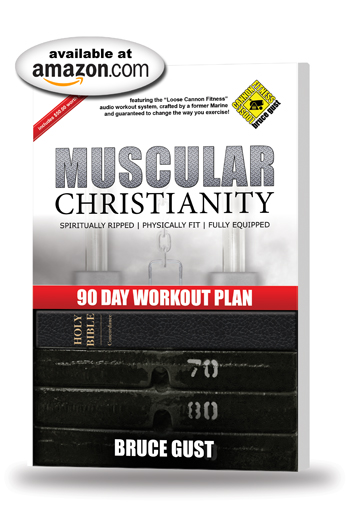
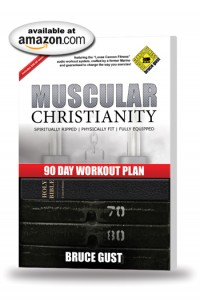





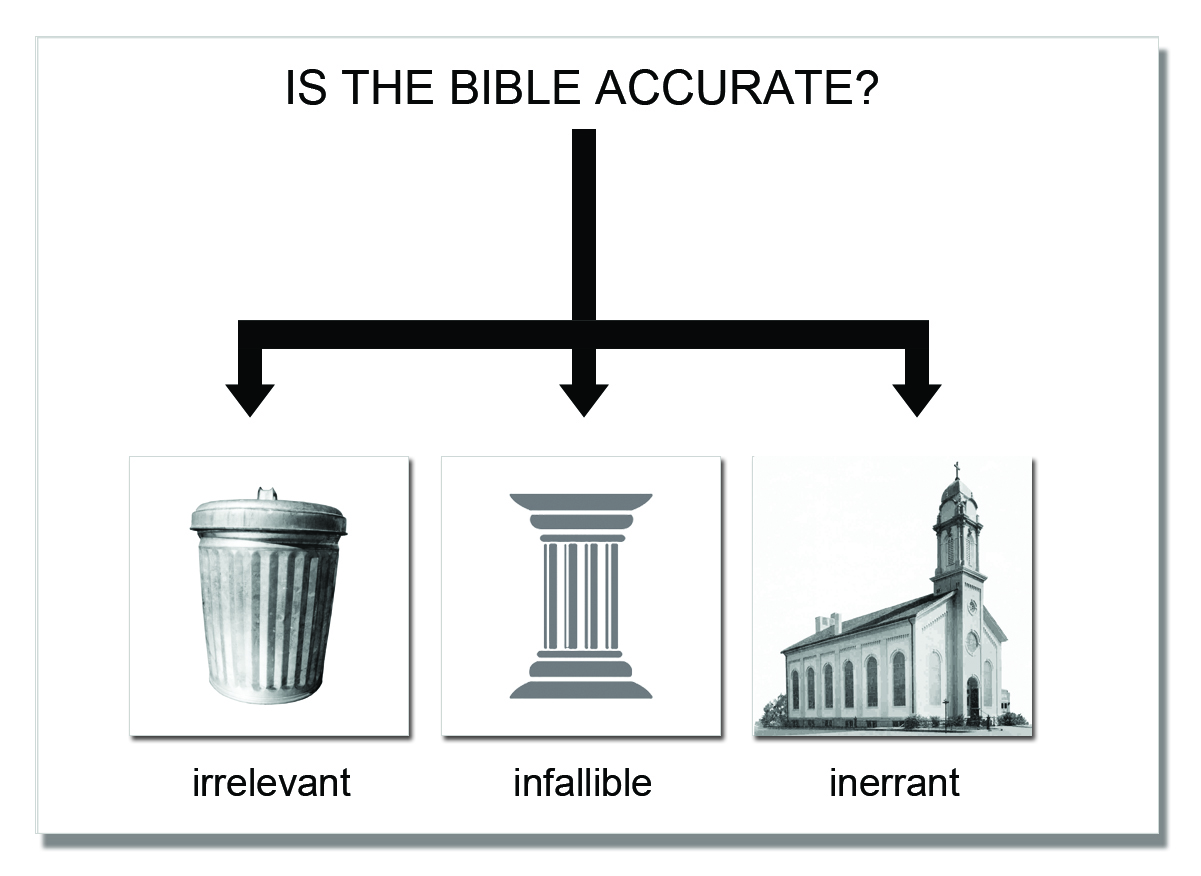




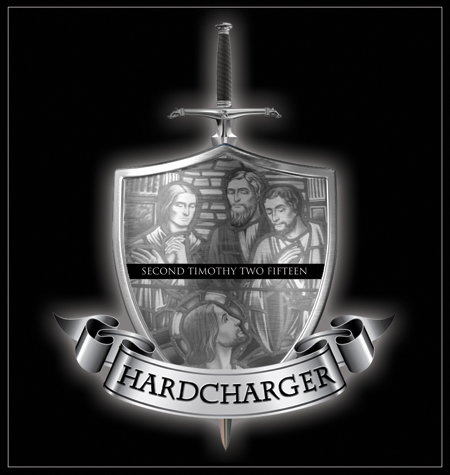
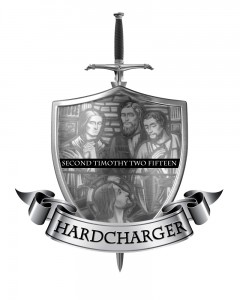


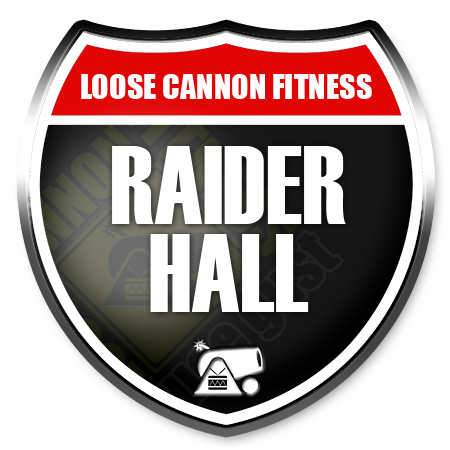
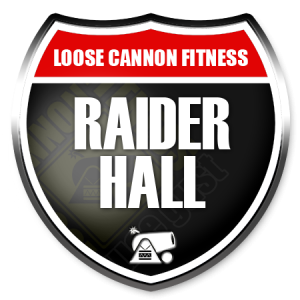










You must be logged in to post a comment.